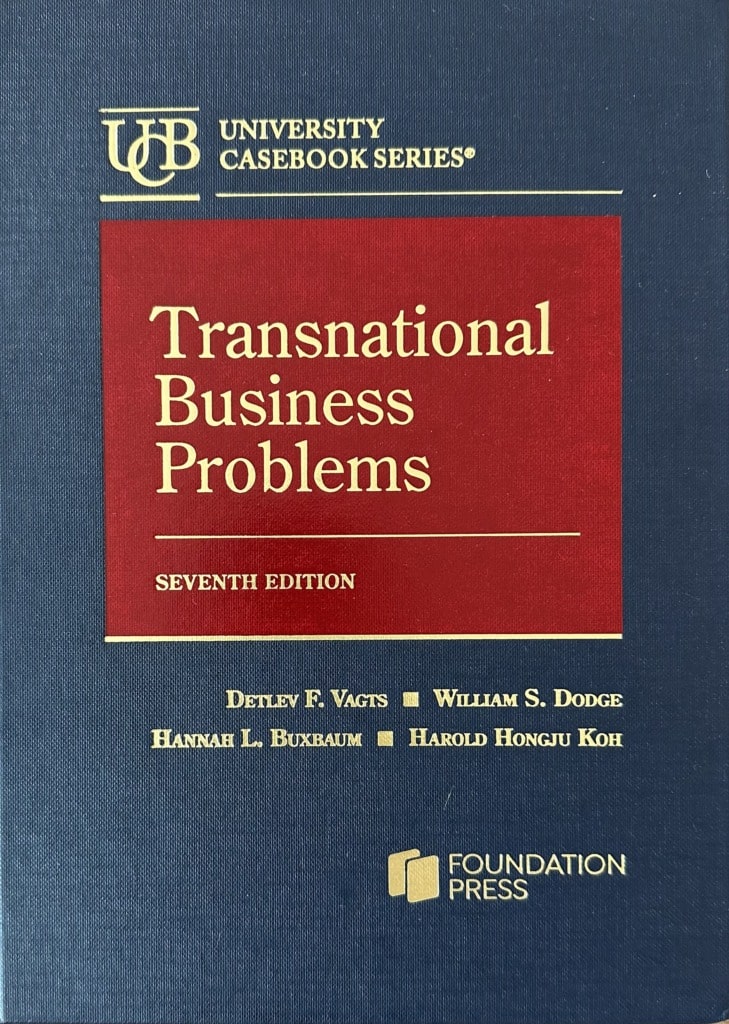New Paper on Forum Non Conveniens and Foreign Sovereigns
When a foreign sovereign files a lawsuit in the United States, is it ever appropriate for the court to dismiss on the grounds that it would be more appropriate for the suit to be litigated in that sovereign’s own courts? This is the question that Eunsun Cho set out to answer in a student note…
Continue ReadingHavlish v. Taliban—Second Circuit Affirms that Afghanistan Central Bank Assets are Immune from Attachment
The Second Circuit has finally decided whether frozen Afghan central bank assets can be attached or turned over to satisfy judgments against the Taliban for acts of terrorism against U.S. citizens. The court answered “no” in Havlish v. Taliban over one partial dissent. The case presents complex and important issues, and although both the majority…
Continue ReadingTrademark Infringement and Exports after Abitron
Two years ago, in Abitron Austria GmbH v. Hetronic International, Inc. (2023), the Supreme Court applied the presumption against extraterritoriality to the federal trademark statute (the Lanham Act), holding that the Act applies only to domestic conduct. Abitron involved imports. Products bearing an infringing trademark were made abroad, some of which were sold, directly or…
Continue Reading*Another* Federal Statute Relating to Foreign Judgments
The standard story relating to the enforcement of foreign judgments in the United States goes something like this: There is a special federal statute—the SPEECH Act—that applies to foreign judgments for libel or defamation. The State Department is currently in the process of drafting a federal statute that would implement the Hague Judgments Convention and…
Continue ReadingUsing TLB to Teach International Business Transactions (2025 Update)
As the fall semester gets underway, we are updating our posts on using resources on TLB to teach various classes. This post discusses International Business Transactions (IBT). Although TLB focuses on litigation and IBT focuses on transactions, there is a great deal of overlap. The most obvious examples are contractual clauses that plan for dispute resolution,…
Continue ReadingUsing TLB to Teach Civil Procedure (2025 Update)
As the fall semester gets underway, we are updating our posts on using resources on TLB to teach various classes. This post gathers materials that can complement a standard civil procedure course, whether by providing concise overviews of doctrines, distilling Supreme Court developments, or suggesting recent cases that can spark discussions of perennial procedural issues….
Continue ReadingA Win for Helms-Burton Plaintiffs, But Potential Loss for US Companies
On July 30, 2025, the U.S. Court of Appeals for the Eleventh Circuit vacated a district court’s decision dismissing José Ramón López Regueiro’s case against American Airlines and LATAM Airlines under Title III of the Helms-Burton Act. The court of appeals remanded, holding that the district court’s interpretation of the citizenship prerequisites in Helm-Burton conflicted…
Continue ReadingD.C. Circuit Holds that District Court Must Decide Jurisdictional Facts under FSIA for Itself
In a recent decision, Hulley Enterprises Ltd. v. Russian Federation, the D.C. Circuit held that a district court must decide for itself any “jurisdictional facts” necessary to establish subject matter jurisdiction in suits against foreign states under the Foreign Sovereign Immunities Act (FSIA). The plaintiffs sought to enforce an arbitral award against Russia. The FSIA’s…
Continue ReadingUsing TLB to Teach Conflict of Laws (2025 Update)
This post updates our series explaining how professors can use resources on TLB to teach various classes. Previous posts have discussed Transnational Litigation, Civil Procedure, Foreign Relations Law, and International Business Transactions. This post discusses Conflict of Laws. All of these posts are accessible at our Teaching Resources page. Primers and Topic Pages Conflict of…
Continue ReadingFirst Circuit Remands Constitutionality of the TVPA to District Court
In Boniface v. Viliena, a Massachusetts jury found a former Haitian mayor liable under the Torture Victim Protection Act (TVPA) for extrajudicial killing, attempted extrajudicial killing, and torture, awarding the three plaintiffs $15.5 million in compensatory and punitive damages. On appeal to the First Circuit, the defendant’s principal arguments were (1) that the TVPA does…
Continue Reading




